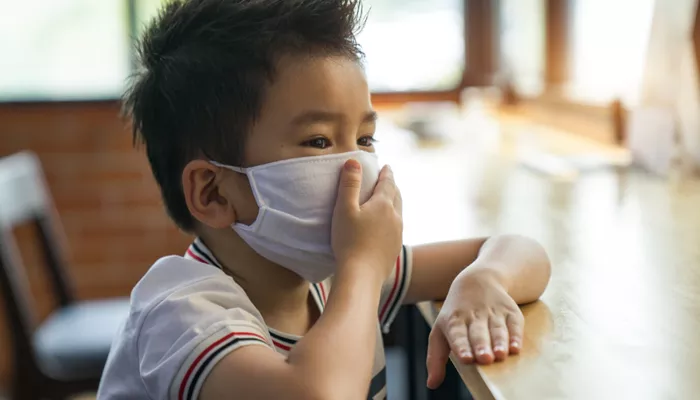16
Coughs and colds are quite common in infants. Given their developing immune systems, infants are more vulnerable to the viruses that cause these ailments. A cold can disrupt an infant’s normal routine, affecting their sleep, feeding, and overall mood. A persistent cough can be particularly distressing for both the baby and the parents. Understanding how to manage these conditions is crucial for the well – being of the infant.
Non – Medical Approaches
Keep Your Infant Hydrated
Hydration is of utmost importance. For infants, breast milk or formula should be the primary source of fluids. Breast milk not only provides essential hydration but also contains antibodies that can help boost the infant’s immune system. If breastfeeding, encourage frequent feeds. For formula – fed infants, ensure they are taking in an appropriate amount of formula. Hydration helps to thin the mucus in the respiratory tract. When the mucus is thinner, it becomes easier for the infant to cough it up, reducing the irritation that causes coughing. A well – hydrated infant is also more comfortable, which can have a positive impact on their overall state.
Nasal Saline Drops
Nasal congestion often accompanies a cold in infants and can contribute to coughing. Nasal saline drops are a safe and effective way to address this. Over – the – counter saline drops designed for infants can be used. To apply, lay the infant on their back with their head slightly elevated. Gently insert a few drops into each nostril, being careful not to touch the tip of the dropper to the nose to avoid contamination. The saline works to moisten the nasal passages and loosen the thick mucus. After using the saline drops, a bulb syringe or nasal aspirator can be used to gently suction out the mucus. This helps to clear the nasal passages, allowing the infant to breathe more easily and reducing the likelihood of post – nasal drip, which can trigger coughing.
Use a Humidifier
Dry air can exacerbate both coughs and cold symptoms in infants. A cool – mist humidifier can be a great addition to the infant’s room. It adds moisture to the air, soothing the nasal passages and the respiratory tract. The added humidity helps to keep the mucus thin, making it easier for the infant to breathe and reducing the irritation that causes coughing. Warm – mist humidifiers can pose a burn risk, so a cool – mist option is preferred. However, it’s important to clean the humidifier regularly to prevent the growth of mold and bacteria, which could further irritate the infant’s respiratory system.
Provide a Comfortable Environment
Create a calm and comfortable environment for the infant. Keep the room at a comfortable temperature, neither too hot nor too cold. A temperature around 68 – 72°F (20 – 22°C) is generally ideal. Swaddle the infant gently if they find it comforting. The sense of security from swaddling can help soothe a fussy infant. Spend extra time holding and cuddling the baby. Physical contact can be very soothing for an unwell infant. It can also help to calm them down, which may reduce coughing episodes that can be triggered by agitation.
Medical Approaches
Consult a Pediatrician
Before considering any medication for an infant with a cough and cold, it’s essential to consult a pediatrician. Most over – the – counter cough and cold medications are not recommended for infants under 2 years old. These medications can have serious side effects, and their effectiveness in very young children has not been well – established. For example, some cough suppressants can suppress the normal cough reflex, which is the body’s natural way of clearing the airways.
Prescription Medications
If the pediatrician determines that medication is necessary, they may prescribe something specific to the infant’s symptoms. For severe nasal congestion that is interfering with the infant’s ability to feed or sleep, a very low – dose nasal decongestant may be prescribed for a short period. But this will be carefully dosed according to the infant’s weight and age. If the cough and cold have led to a secondary bacterial infection, such as an ear infection, antibiotics may be prescribed. These medications should only be used as directed by the doctor, and the infant should be closely monitored for any signs of adverse reactions.
When to Seek Urgent Medical Help
Difficulty Breathing
If the infant is struggling to breathe, has shortness of breath, or their ribs are pulling in with each breath (a sign called retractions), this is a medical emergency. Fast breathing, noisy breathing (such as wheezing or stridor), or a bluish color around the lips or face are also very serious signs that require immediate medical attention.
High Fever
A fever in an infant is a cause for concern. If the infant has a temperature of 100.4°F (38°C) or higher, contact the pediatrician immediately. Do not give the infant any fever – reducing medication before consulting the doctor, as the wrong dosage can be dangerous. A fever can be a sign of a serious underlying infection, such as pneumonia, which may have developed as a result of the cough and cold.
Persistent Symptoms
If the infant’s cough and cold symptoms, such as a runny nose, cough, or fever, last for more than a few days or seem to be getting worse, it’s time to see the doctor. Persistent symptoms can be a sign of a more serious condition that requires medical intervention.
Caring for an infant with a cough and cold can be challenging, but by using non – medical approaches, seeking appropriate medical advice, and knowing when to seek urgent help, parents can help their infant recover and ensure their well – being.
Conclusion
Related topics:
Advertisements


